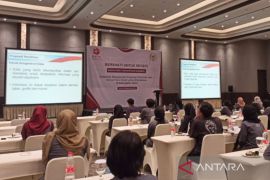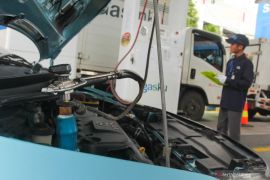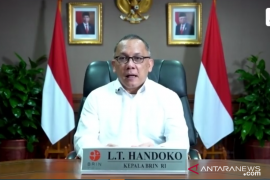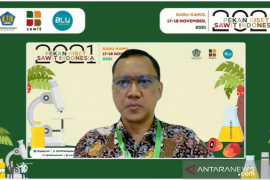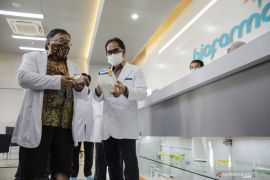Related news: Jokowi distributes BSU, BLT BBM assistance to Baubau residents
In the short term, more job-creating policies and investments are needed, especially labor-intensive programs, so as to increase the number of productive workers nationally, a macroeconomics and international trade researcher at BRIN, Iwan Hermawan, explained during “The Impact of Fuel Price Increases on the Economic Sector in Indonesia” event hosted by the agency here on Monday.
"The transportation, logistics, and agricultural services sectors, particularly food transportation, need to receive additional government funding, including subsidy spending, to reduce volatility and rising food prices," he said.
Motivation is needed for the food import substitution industry, which has a comparative advantage, in order to significantly increase its growth, he added.
The distribution of social assistance needs to be adjusted to the right index or amount, supported by valid recipient data and a strict monitoring system, to ensure that it is targeted and in accordance with public needs, he said.
In addition, the government needs policy orchestration to ensure that the public can get information properly and programs to increase the productivity of MSMEs can run more effectively and efficiently, he said.
"Because this subsidy is related to many ministries and institutions," he added.
He said that the recent fuel price adjustment will reduce people's purchasing power and the productivity of MSMEs, thus compromising the growth of the national gross domestic product (GDP) and bringing down the household welfare rate.
However, if it is accompanied by the right policy mix, such as the distribution of effective social assistance and the reallocation of the budget to the transportation, logistics, and agriculture sectors (supply side), its impacts can be controlled in the future, he opined.
Related news: Government distributes first-phase wage subsidy to 4.1 million workers
Translator: M Heriyanto, Mecca Yumna
Editor: Rahmad Nasution
Copyright © ANTARA 2022





